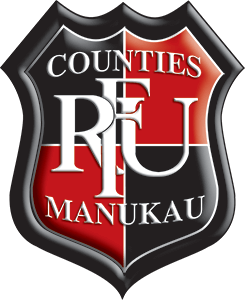News
Jeremy Wara Jet-sets to Japan to help develop the rugby landscape
Jeremy Wara has just returned from a two week long trip to Japan. We asked him to share some of the information and inspiration he gained on his trip.
How is rugby in Japan different to in New Zealand, and how is it similar?
"This was the first taste of rugby for the majority of the students we visited. Most of them had not seen a rugby ball in their life time so it was a completely new concept for them. In saying that their ability to adopt a totally foreign game was beyond my belief as both boys and girls picked it up very quick. So quick that by the end of each session they were playing as good, if not better than a lot of Kiwi kids their age".
"In the city of Urayasu, they do not have many fields. We saw 2 actual grass fields in our entire time being there and they belonged to the professional teams being NTT Communications and JAL (Japan Air Lines). The rest of the school and training grounds are a dry dirt track similar to a clay tennis court. This is because the bulk of the city is on ‘reclaimed land’ (man made land which used to be ocean). So kids there don’t get to spend much time on actual grass at all
"Japanese training techniques are very much straight lines, organised to a tee and very rigid. Our approach to player ownership, interaction with players and dealing with dynamic situations are very much out of their comfort zone. We managed to shift some mindsets around accepting a culture of failure is an ok thing to do, as long as learning takes place. They don’t like to see failure and like things to look and be executed perfectly, which is great however can be very pressurizing and frustrating for the players"
"In the city of Urayasu, they play Tag (Rippa) Rugby up until they turn 14 where they may choose to play tackle rugby in Tokyo. In Tokyo they begin playing tackle rugby from U8 as we do here in NZ however the game is still in infancy stage in Urayasu"
Does culture influence the game, and if it does, how?
"Their culture of perfectionism is evident in the way they practice and play the game. Things look very neat and when things are going well, they are dominant. However when unplanned circumstances occur they struggle abit, which is where our players in NZ thrive. While this is the case, I noticed a number of the coaches adopted ‘our way’ very well and I can tell that if they continue to practice ‘gamifying trainings and incorporating game scenarios’ they will be quite a force as they adapt quite well"
"They have great rituals in Japan. We attended the final home game for the Sunwolves and their attention to detail when greeting and farewelling fans to and from the game was second to none. They had people at the front gates purely greeting people and asking how their day was and what they could look forward to. The Japanese have a saying “Ichi go, Ichi e” which means “One time, One meeting”. The Japanese live by a code, that you may only meet once, so there fore give your very best to that person. This was evident in how we were treated at the games we attended, by our hosts and the communities we were involved with. If the world lived by this code, there would be far less chaos and greed in the world because we would realise it is not about us, it is about treating those you meet with utmost respect and honouring them which in turn draws the same in response"
What were the highlights of your trip?
"Connecting with the people in our close circle. We had a support crew of 26 people across the 2 weeks we were there. Many of them were volunteers doing a service for the city. We were meant to have 5 per day, however that number blew out to 10+ per day because they were keen to be part of the program and us. Having Tiki Edwards (NZ Maori Rugby Officer), Corey Kennett (Horowhenua Kapiti CEO) and myself there, we were able to share a lot of our maori culture with them and they seemed to really enjoy that connection. It is well known that the Japanese people don’t show emotion too often, however at our farewell dinner, they showed their emotional side and with the help of Isaac Ross we honoured them with a haka to show our gratitude and accepetance of their brotherhood"
"Spreading our game across the world by hitting grass roots level and starting in the elementary schools. The greatest feedback was hearing the kids say they wanted to learn more about the game and are looking forward to the RWC even more so,because we were there"
"Getting thrown in the deep end and having to scrape up a coaching session on the spot for the JAL mens team. We went along to watch a training and when we arrived we checked the session plan and saw that our names were on it.
"Showing the coaches ‘our way’ of coaching. Interaction v’s Instruction, meeting the mayor and his men in the Urayasu City Hall, having lunch with a real snake in a real café, flying business class and the AMAZING food!!!"
What are the top three lessons learnt and what you hope to bring back to us at Counties?
- Ichi Go, Ichi E – One time, one meet. Give our best to each other as it may be our last
- Coaching process extends boundaries – Even though you cant speak their language, you can still get your message across
- Rugby is definitely a universal game and more people want to explore it. The Japanese youth really enjoyed the concepts of working together, unity and being behind a team mate to support them to go forward. They were quite reflective in how they adapted the game to life









